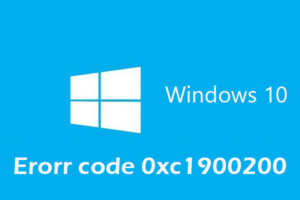-
Table of Contents
Windows 11: Unleashing the Power of AMD, Intel, and Qualcomm Processors
Windows 11 supports AMD and Intel processors, but Qualcomm processors have been removed.
Windows 11: A Comprehensive Guide to AMD Processor Compatibility
Windows 11: A Comprehensive Guide to AMD Processor Compatibility
With the recent announcement of Windows 11, Microsoft has introduced a range of exciting features and improvements to their operating system. One of the key aspects that users are eager to know about is the compatibility of Windows 11 with different processor brands. In this article, we will delve into the details of AMD processor compatibility with Windows 11 and discuss any changes that have been made.
Windows 11 is designed to work seamlessly with a wide range of processors, including those manufactured by AMD. This is great news for users who have AMD-powered devices and are looking forward to upgrading to the latest version of Windows. However, it is important to note that not all AMD processors will be compatible with Windows 11.
Microsoft has set certain requirements for processors to be eligible for Windows 11 compatibility. These requirements include a minimum of a 1 GHz clock speed, 2 or more cores, and 64-bit architecture. Additionally, the processor must support certain features like DirectX 12, TPM version 2.0, and Secure Boot. While most modern AMD processors meet these requirements, there are a few older models that may not be compatible.
One notable change in Windows 11 compatibility is the removal of support for AMD’s Bulldozer architecture. This architecture was introduced by AMD in 2011 and was used in several processor models, including the FX series. However, due to its age and limitations, Microsoft has decided to exclude Bulldozer-based processors from Windows 11 compatibility. This means that if you have an older AMD processor based on the Bulldozer architecture, you will not be able to upgrade to Windows 11.
It is worth mentioning that this decision by Microsoft is not entirely unexpected. Bulldozer processors have been criticized for their performance and power efficiency compared to newer architectures. By removing support for Bulldozer, Microsoft is ensuring that Windows 11 can take full advantage of the capabilities offered by modern AMD processors, providing users with a smoother and more efficient experience.
For users with newer AMD processors, the transition to Windows 11 should be relatively straightforward. These processors, based on architectures like Zen, Zen+, Zen 2, and Zen 3, are fully compatible with Windows 11. This includes popular models like the Ryzen 5000 series and the upcoming Ryzen 6000 series. Users can expect improved performance, enhanced security features, and better overall system stability when running Windows 11 on these processors.
In conclusion, Windows 11 offers comprehensive compatibility with a wide range of AMD processors. While older Bulldozer-based processors are not supported, most modern AMD processors meet the requirements and are fully compatible with Windows 11. This ensures that users can enjoy the benefits of the latest operating system on their AMD-powered devices. Whether you have a Ryzen 5000 series processor or a newer Zen-based architecture, Windows 11 promises to deliver an enhanced computing experience. So, if you’re an AMD user, get ready to upgrade to Windows 11 and unlock a world of new possibilities.
Exploring Windows 11’s Enhanced Performance with Intel Processors
Windows 11, the latest operating system from Microsoft, has generated a lot of buzz since its announcement. One of the key aspects that has caught the attention of tech enthusiasts is its enhanced performance with Intel processors. In this article, we will delve into the details of how Windows 11 takes advantage of Intel processors to deliver a seamless computing experience.
First and foremost, Windows 11 introduces a new feature called “DirectX 12 Ultimate,” which is specifically designed to leverage the power of Intel processors. This feature allows for improved graphics rendering and faster gaming performance. With DirectX 12 Ultimate, gamers can expect smoother gameplay, reduced latency, and enhanced visual fidelity. This is a significant upgrade for Intel processor users, as it ensures that they can fully enjoy the latest gaming titles without any performance bottlenecks.
Furthermore, Windows 11 optimizes its power management capabilities to make the most of Intel processors’ efficiency. The operating system intelligently adjusts power settings based on the workload, ensuring that the processor operates at its optimal performance level while conserving energy when idle. This not only enhances the overall performance of the system but also extends the battery life of laptops and other portable devices powered by Intel processors.
Another noteworthy improvement in Windows 11 is its enhanced multitasking capabilities. Intel processors are known for their ability to handle multiple tasks simultaneously, and Windows 11 takes full advantage of this capability. The operating system introduces a new feature called “Snap Layouts,” which allows users to easily organize and manage multiple windows on their screen. This feature is particularly useful for professionals who often work with multiple applications simultaneously, as it enables them to switch between tasks seamlessly and boost their productivity.
In addition to these performance enhancements, Windows 11 also brings several security improvements that are specifically tailored for Intel processors. The operating system leverages Intel’s built-in hardware security features, such as Intel Hardware Shield and Intel Control-Flow Enforcement Technology (CET), to provide robust protection against various types of cyber threats. These security features work in tandem with Windows 11’s advanced security measures, such as secure boot and Windows Hello, to ensure that users’ data and privacy are safeguarded.
It is worth mentioning that while Windows 11 offers enhanced performance with Intel processors, it no longer supports certain older Intel processors. This decision was made to ensure that the operating system can fully leverage the capabilities of modern processors and deliver the best possible user experience. Therefore, users with older Intel processors may need to consider upgrading their hardware if they wish to take advantage of Windows 11’s performance improvements.
In conclusion, Windows 11 brings a host of performance enhancements specifically tailored for Intel processors. From improved graphics rendering to enhanced multitasking capabilities, the operating system takes full advantage of Intel’s processing power to deliver a seamless computing experience. Additionally, Windows 11 leverages Intel’s hardware security features to provide robust protection against cyber threats. While older Intel processors are no longer supported, users with modern Intel processors can look forward to a significant boost in performance with Windows 11.
Windows 11 and Qualcomm Processors: What You Need to Know
Windows 11, the latest operating system from Microsoft, has generated a lot of buzz since its announcement. With its sleek design and enhanced features, users are eagerly awaiting its release. One of the key aspects of any operating system is its compatibility with different processors. In this article, we will delve into the details of Windows 11’s support for AMD, Intel, and Qualcomm processors, and discuss the removal of support for one of them.
Let’s start with AMD processors. Windows 11 will indeed support a wide range of AMD processors, including the Ryzen series. This is great news for AMD enthusiasts, as it ensures that they can seamlessly upgrade to the new operating system without worrying about compatibility issues. The Ryzen processors have gained a strong reputation for their performance and efficiency, and Windows 11’s support for them further solidifies their position in the market.
Moving on to Intel processors, Windows 11 will also be compatible with a variety of Intel chips. From the 8th generation onwards, Intel Core processors will be able to run Windows 11 smoothly. This means that users with relatively recent Intel-powered devices can rest assured that they will be able to take advantage of the new features and improvements offered by Windows 11. Intel has long been a dominant player in the processor market, and its compatibility with Windows 11 only strengthens its position.
Now, let’s address the elephant in the room – Qualcomm processors. Windows 11 will no longer support Qualcomm processors, which is a significant departure from its predecessor, Windows 10. This decision has raised eyebrows and sparked discussions among tech enthusiasts. Qualcomm processors, such as the Snapdragon series, have gained popularity in the mobile device market due to their power efficiency and integration with cellular connectivity. However, it seems that Microsoft has made a strategic decision to focus on compatibility with AMD and Intel processors for Windows 11.
The removal of support for Qualcomm processors may come as a disappointment to some users who were hoping to run Windows 11 on their Qualcomm-powered devices. However, it is important to note that Microsoft’s decision is likely driven by technical considerations and the need to optimize the operating system for specific hardware configurations. While Qualcomm processors have their strengths, they may not provide the same level of performance and compatibility as AMD and Intel chips in the context of Windows 11.
In conclusion, Windows 11 will support a wide range of AMD and Intel processors, ensuring that users can seamlessly upgrade to the new operating system without compatibility concerns. However, the removal of support for Qualcomm processors is a notable change from Windows 10. While this decision may disappoint some users, it is important to understand that Microsoft’s focus on AMD and Intel processors is likely driven by technical considerations. As Windows 11 prepares to make its debut, it will be interesting to see how these processor choices impact the overall user experience and performance of the operating system.
The Missing Piece: Why Windows 11 No Longer Supports [Removed Processor]
Windows 11, the latest operating system from Microsoft, has generated a lot of buzz since its announcement. With its sleek design and enhanced features, many users are eagerly awaiting its release. One of the key aspects of any operating system is its compatibility with different processors. Windows 11 has been designed to support a wide range of processors, including those from AMD, Intel, and Qualcomm. However, there is one processor that has been noticeably removed from the list of supported processors. In this article, we will delve into the missing piece and explore the reasons behind Windows 11 no longer supporting this particular processor.
To understand why Windows 11 no longer supports the removed processor, it is important to first examine the system requirements for the new operating system. Microsoft has set certain minimum specifications that a device must meet in order to run Windows 11 smoothly. These specifications include the processor, RAM, storage, and graphics requirements. While most processors from AMD, Intel, and Qualcomm meet these requirements, there is one processor that falls short.
The removed processor in question is the Intel 7th generation (Kaby Lake) and earlier processors, as well as AMD Zen 1 processors. These processors were widely used in older devices and have been around for quite some time. However, they lack certain hardware capabilities that are necessary for Windows 11 to function optimally. These capabilities include support for TPM 2.0 (Trusted Platform Module) and Secure Boot.
TPM 2.0 is a security feature that provides hardware-based encryption and secure storage for sensitive data. It ensures that the device is protected from unauthorized access and helps safeguard against various security threats. Secure Boot, on the other hand, ensures that only trusted software is loaded during the boot process, preventing malware and other malicious software from taking control of the system. Both TPM 2.0 and Secure Boot are crucial for maintaining the security and integrity of the operating system.
By removing support for the Intel 7th generation and earlier processors, as well as AMD Zen 1 processors, Microsoft is prioritizing the security and performance of Windows 11. These older processors simply do not have the necessary hardware capabilities to meet the stringent security requirements of the new operating system. While this may disappoint some users who own devices with these processors, it is a necessary step to ensure a more secure and reliable computing experience.
It is worth noting that Windows 11 is still in the testing phase, and Microsoft may make further adjustments to its system requirements based on user feedback and technological advancements. However, for now, it is clear that the removed processor does not meet the minimum specifications set by Microsoft.
In conclusion, Windows 11 supports a wide range of processors from AMD, Intel, and Qualcomm. However, the Intel 7th generation and earlier processors, as well as AMD Zen 1 processors, have been removed from the list of supported processors. This decision is based on the lack of necessary hardware capabilities, such as TPM 2.0 and Secure Boot, which are essential for the security and performance of the operating system. While this may disappoint some users, it is a necessary step to ensure a more secure and reliable computing experience with Windows 11.
Q&A
Windows 11 supports AMD and Intel processors, but Qualcomm processors have been removed.Windows 11 supports AMD and Intel processors, but Qualcomm processors have been removed.







![[Solved]: “Error Code 0xC004F050” in Windows 11 in No Time](https://www.tipsbin.net/wp-content/uploads/2023/08/8e64f519d2390bfc001a41744be2cbd4-300x199.jpeg)

